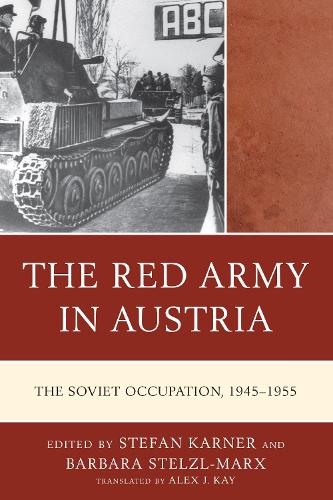
The Red Army in Austria: The Soviet Occupation, 19451955
(Hardback)
Publishing Details
The Red Army in Austria: The Soviet Occupation, 19451955
By (Author) Stefan Karner
Edited by Barbara Stelzl-Marx
Contributions by Dieter Bacher
Contributions by Gnter Bischof
Contributions by Aleksei Filitov
Contributions by Walter M. Iber
Contributions by Harald Knoll
Contributions by Mikhail Prozumenshchikov
Contributions by Peter Ruggenthaler
Translated by Alex J. Kay
Bloomsbury Publishing PLC
Lexington Books
2nd September 2020
United States
Classifications
Professional and Scholarly
Non Fiction
European history
943.60523
Physical Properties
Hardback
286
Width 160mm, Height 229mm, Spine 27mm
608g
Description
Based on interviews and a broad array of sources from Russian and Austrian archives, this collection provides a comprehensive analysis of the Soviet occupation of Austria from 1945 to 1955. The contributors cover a wide range of topics, including the Soviet Secret Services, the military kommandaturas, Soviet occupation policies and the withdrawal of troops in 1955, everyday life, the image of the Russians, violence against women, arrests, deportations, and Soviet aid provisions.
Reviews
Based on an unprecedented richness of primary sources from Austrian and Russian archives, this volume presents important contributions to the interpretation of Soviet policy towards Vienna during and after World War II. The contributors aptly analyze the multifaceted interconnections between economic and broader strategic conceptions in Soviet decision-making. They demonstrate the Cold wars all-encompassing scope and itssometimes contradictoryinfluence on all aspects of social and individual life. The findings provide a challenging example of multi-perspective research on international history that can inspire future research on the multifaceted dimensions of the early Cold War and beyond. -- Andreas Hilger, German Historical Institute Moscow
Author Bio
Stefan Karner is professor and chair of the Institute for Economic, Social and Business History at the University of Graz.
Barbara Stelzl-Marx is director of the Ludwig Boltzmann Institute for Research on Consequences of War and professor of contemporary history at the University of Graz.
